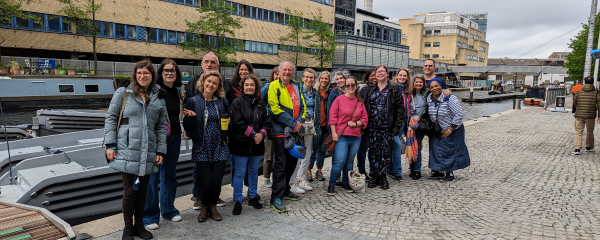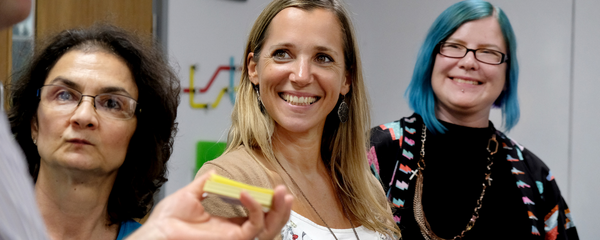
Happy’s 4 Day Week: You Should Try it Too! (18 Month Update)
Happy's 4 Day Week has been running now for 18 months. Happy's Founder and Chief Happiness Officer Henry Stewart looks back at how things have progressed and the impact it has had so far.
Here you can find all of Happy’s blog posts, covering our Excel hints and tips, ideas for creating happy workplaces, and ways to be more productive at work — and more.

Happy's 4 Day Week has been running now for 18 months. Happy's Founder and Chief Happiness Officer Henry Stewart looks back at how things have progressed and the impact it has had so far.

I have asked thousands of people when they work at their best. For over 90% of them it has been when they have been given the trust and freedom to make their own decisions. I have also asked whether they like “complete freedom” or “freedom within guidelines”. While there are a few anarchists who like complete freedom (especially entrepreneurs) most people – again roughly 90% - choose freedom within guidelines.

Alex Soojung-Kim Pang is one of our speakers at the online Happy Workplaces Conference on 15th June. He is a key player in the four-day work week movement and has also written a book called Shorter about that topic. At the conference, he will be talking about his first book, Rest: Why You Get More Done When You Work Less. “Long hours are an expression of our identity and proof of our seriousness,” Alex suggests. “They don’t necessarily make us more productive; they make us look more productive.”

I recently did a podcast with Liz Wiseman, the author of Multipliers: How the Best Leaders Make Everyone Smarter (and Impact Players). Her book, Multipliers, has had a transformational impact on Happy and on our programmes. All of our ‘people managers’ are Multipliers, who enable their people to do their best work, and we’ve began training others on how to be a Multiplier on our leadership programmes.

The first attendees of our Level 7 Senior Leadership programme have just completed their studies. The Level 7 programme is the equivalent of a post-graduate degree or MBA. In this blog, Henry speaks to people who attended the programme and how it changed both their leadership style and their organisation.

Henry discusses the importance of having several different tracks for promotion. Management isn't always for everyone and people should be paid for what they are good at.

Last month I wrote a LinkedIn post suggesting that staff should decide the CEO’s salary, based on my own experience of doing just that. So far it has received 344,000 views and 505 comments. And it seems to have been controversial.

Is your organisation one where people can move quickly and get new ideas out there, or is it stymied in levels of approval and hierarchy? In this blog, Henry talks about some of the various approaches of several well-known companies, as well as Happy's own policy towards this.

Let’s stop asking for degrees in recruitment. Santander recently announced that they would remove the requirement for a 2:1 degree from its graduate scheme, and is apparently the only bank to allow graduates with a third-class degree. I would go beyond that and ask why degrees are necessary at all. Maybe graduate schemes should be changed to simply employ the brightest and the best, whether or not they have a degree.

I’m now back from my sabbatical and, while I was away, our people at Happy decided to make the four-day week (currently a six-month pilot) permanent. It has been a remarkable success. In this blog I talk about the key results of the survey that informed the decision to go permanent.